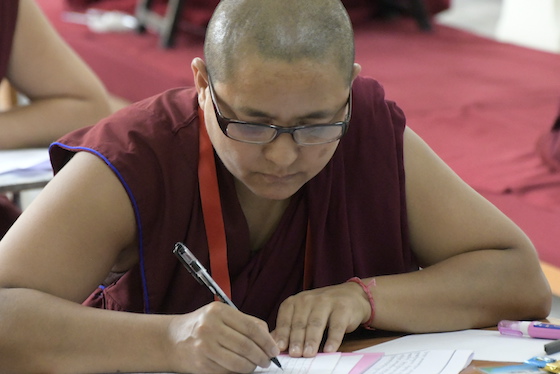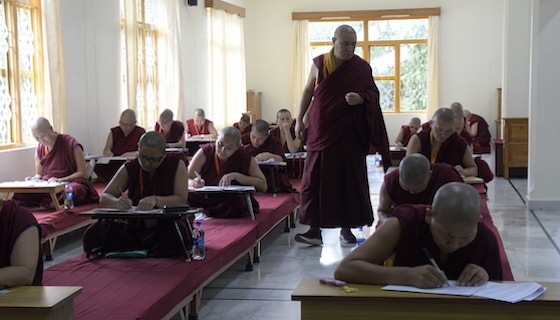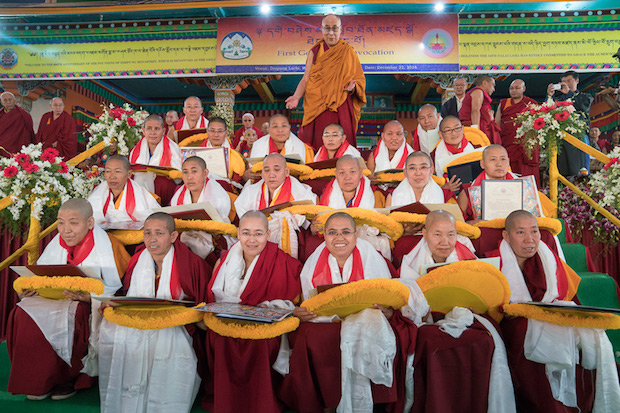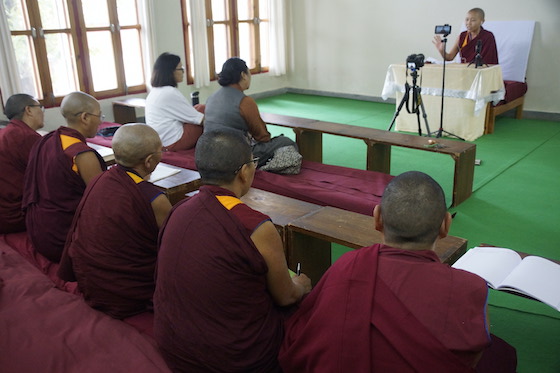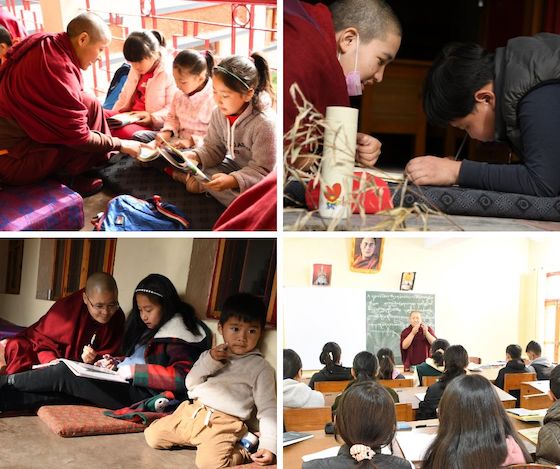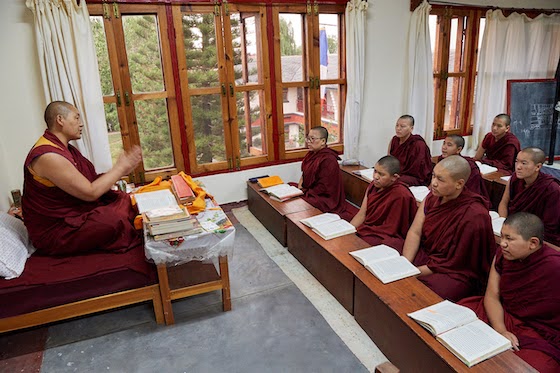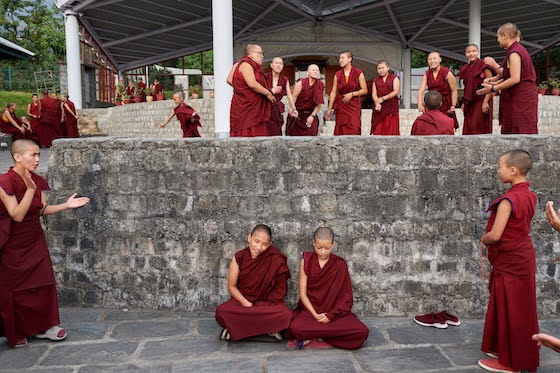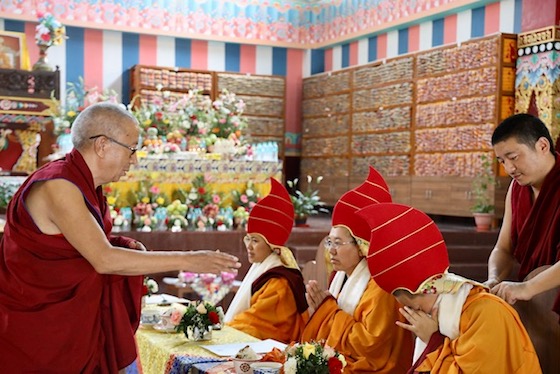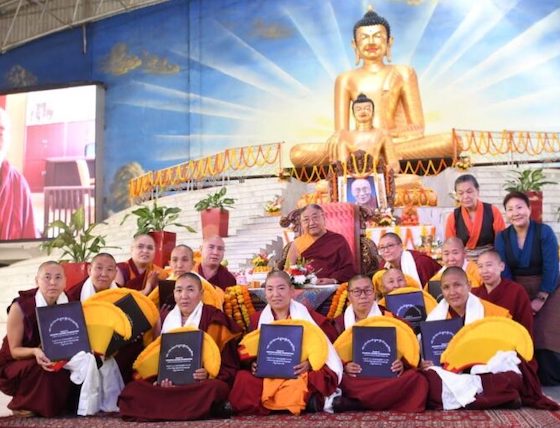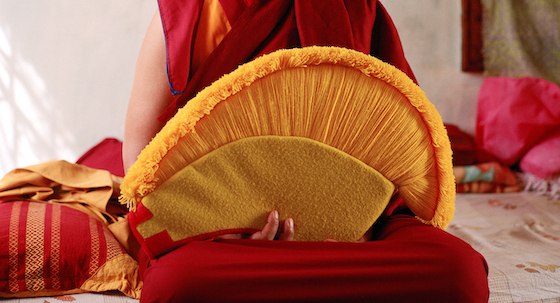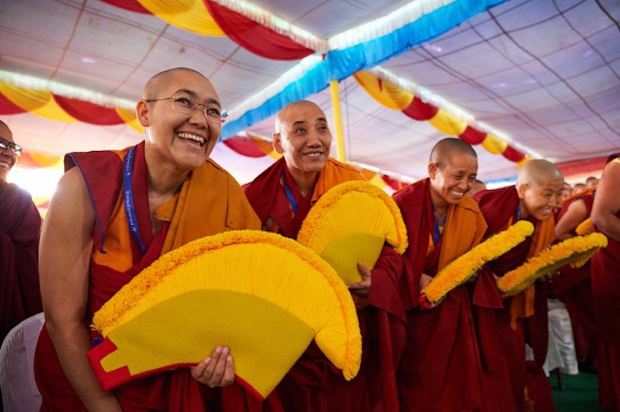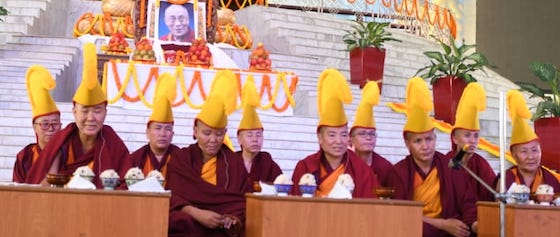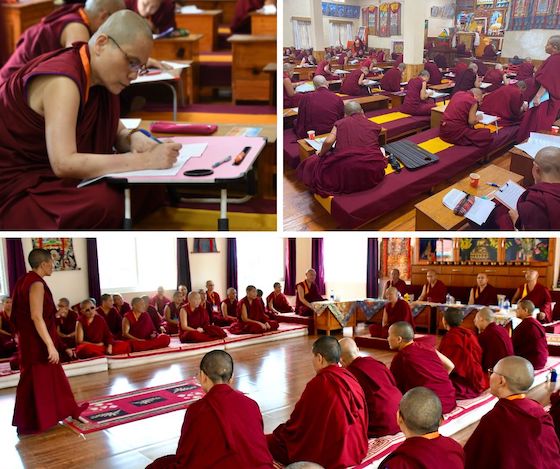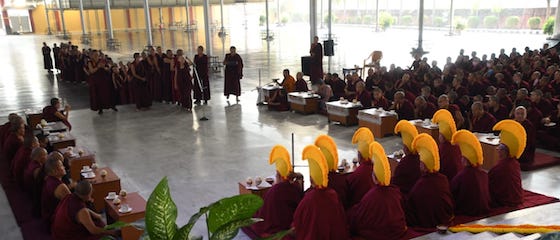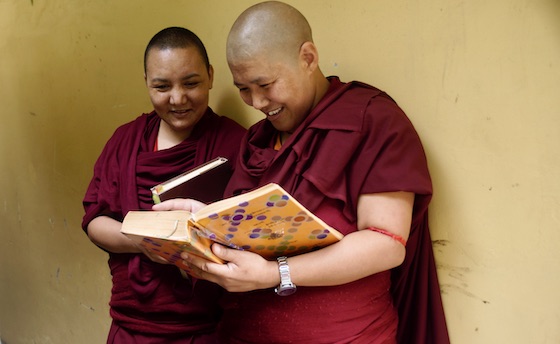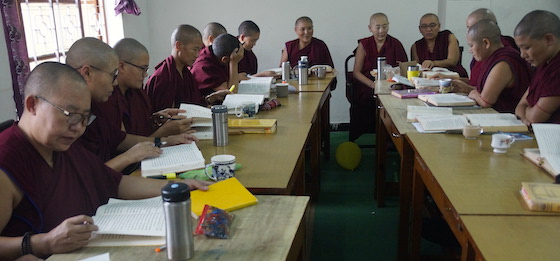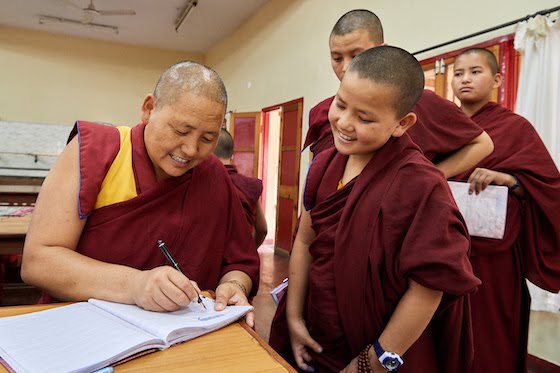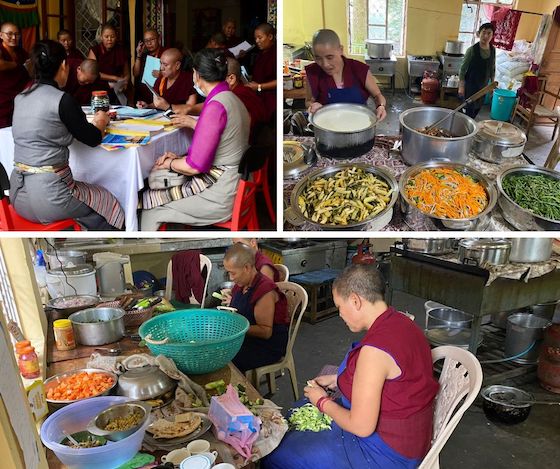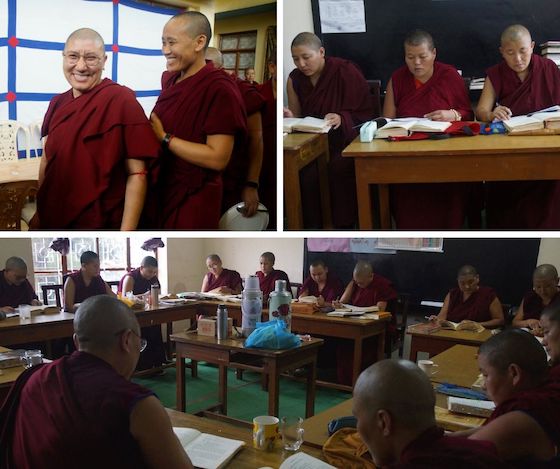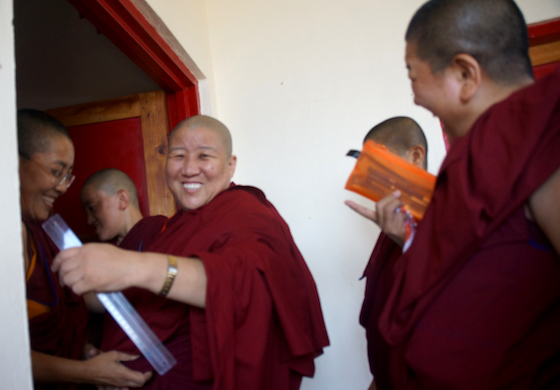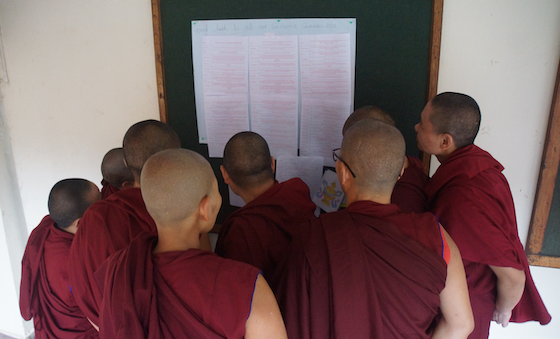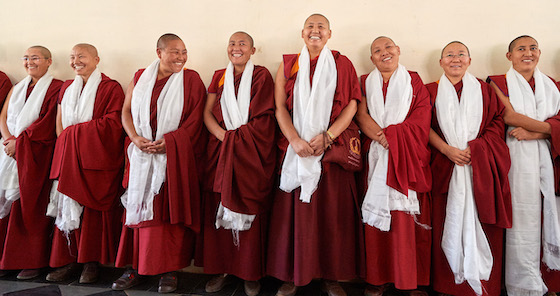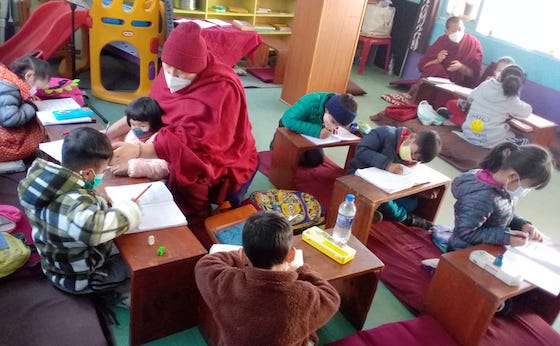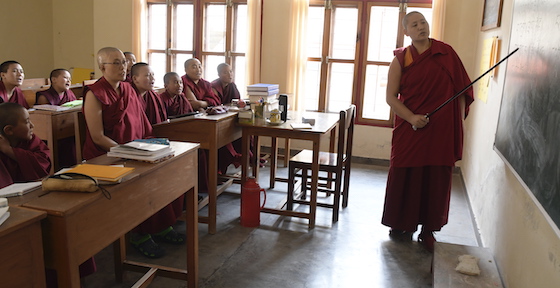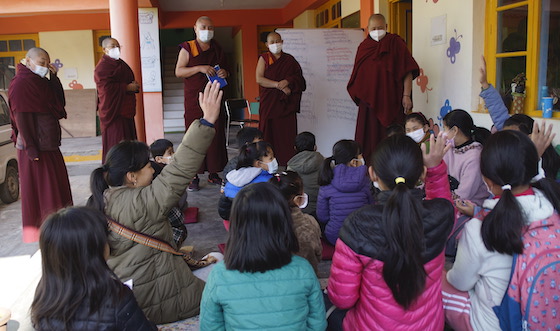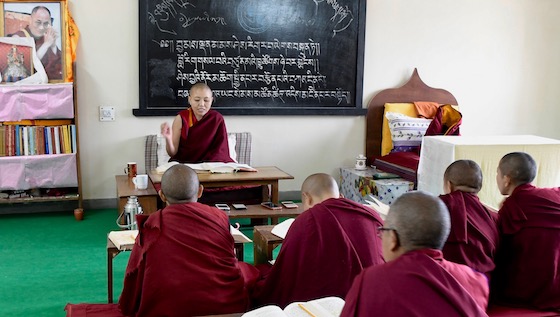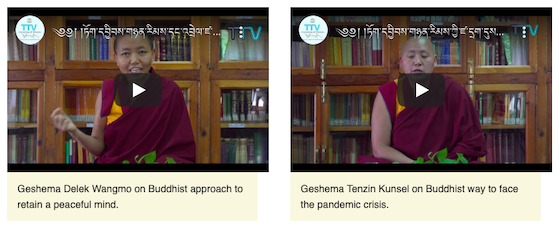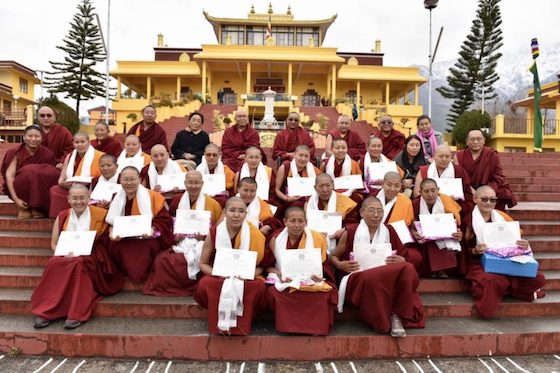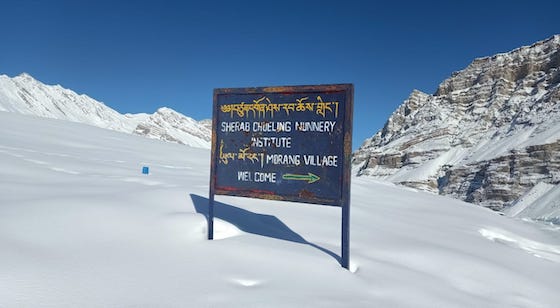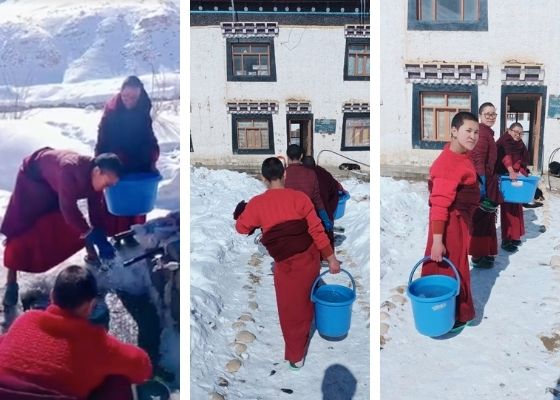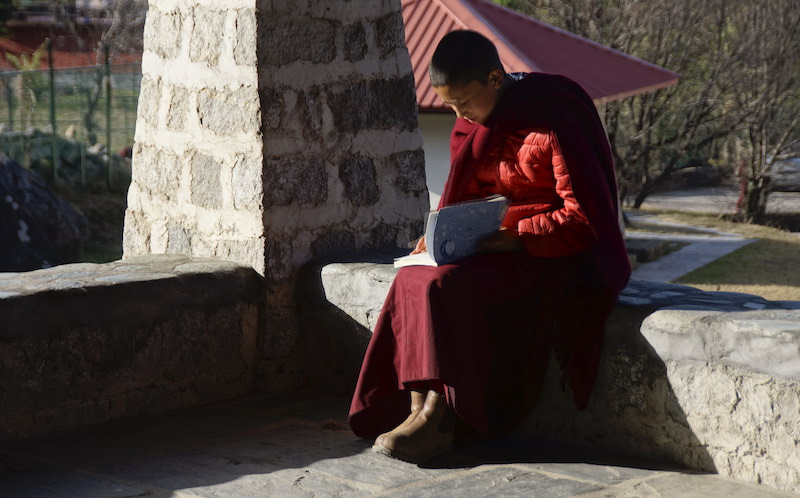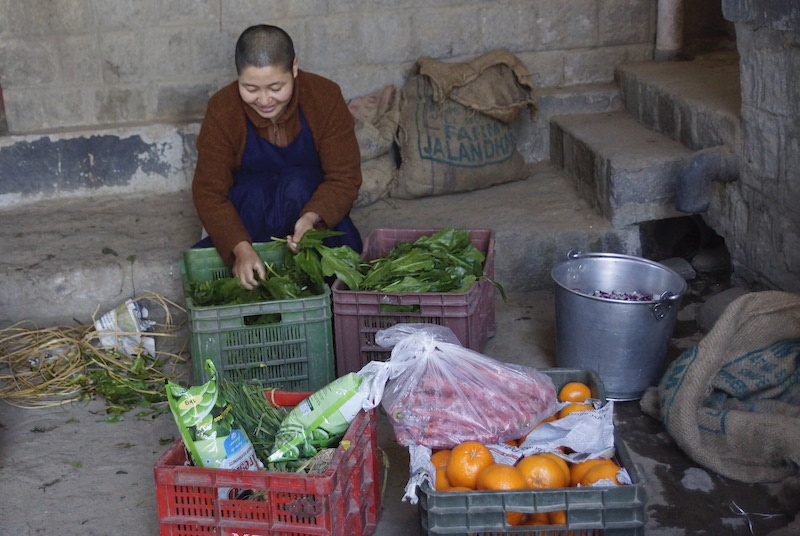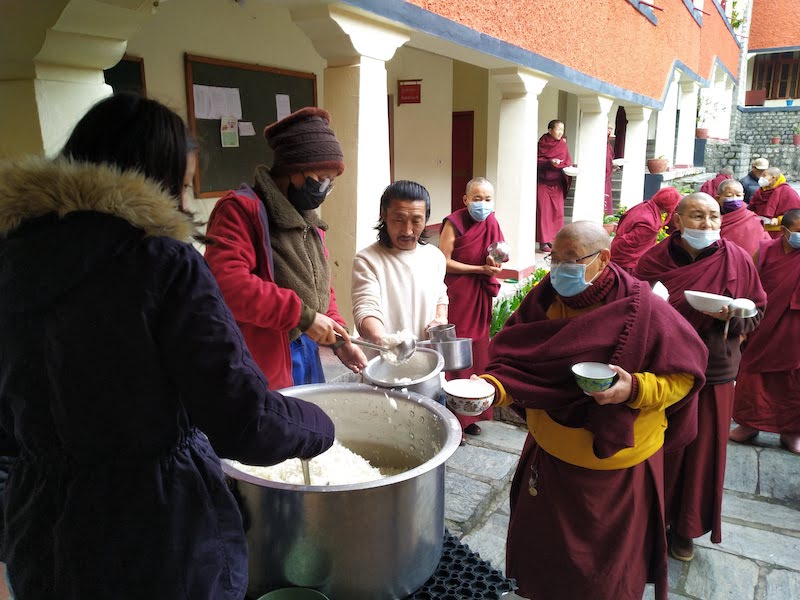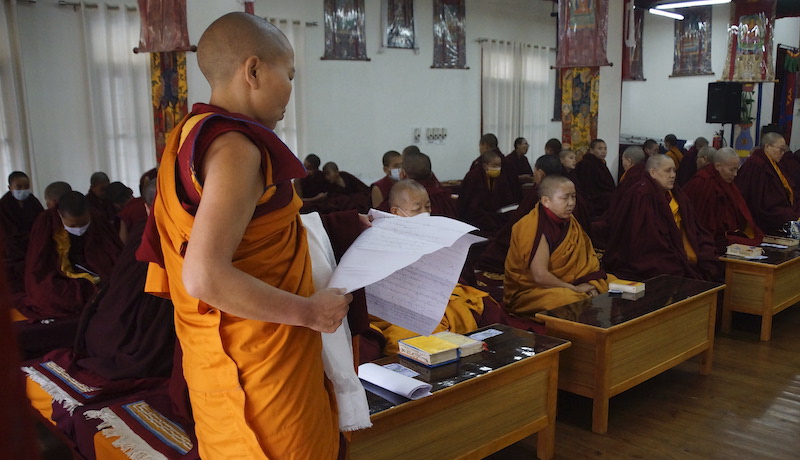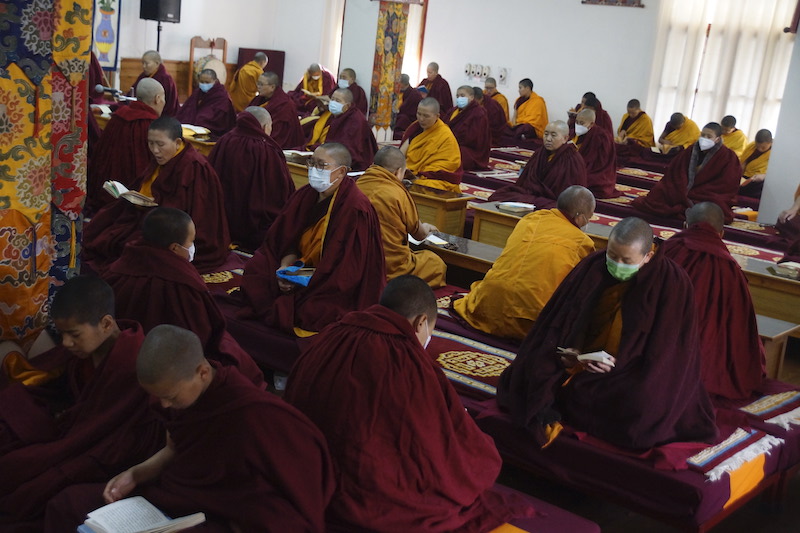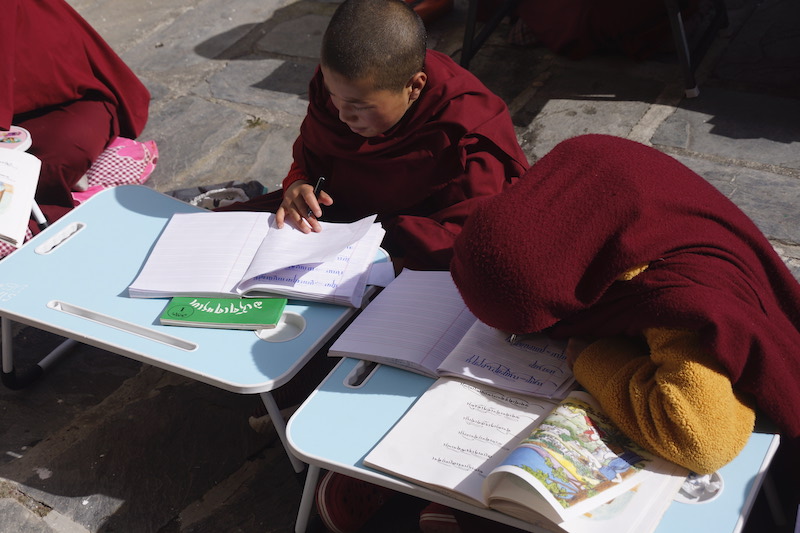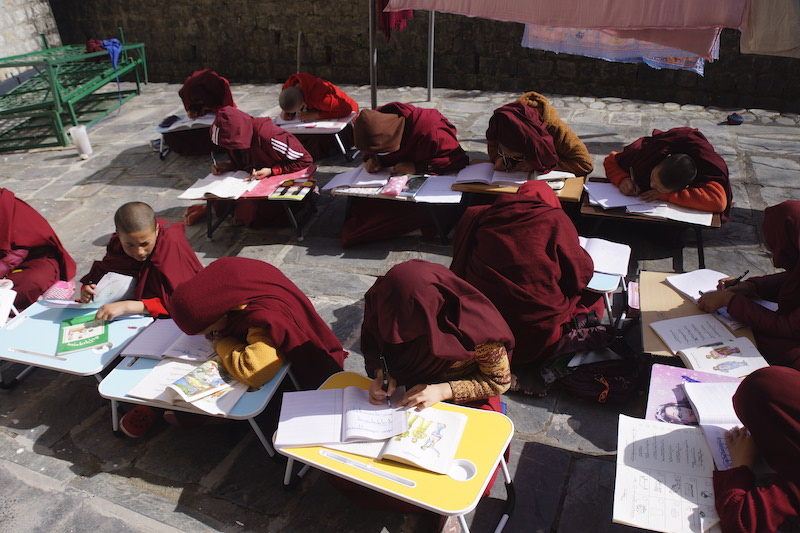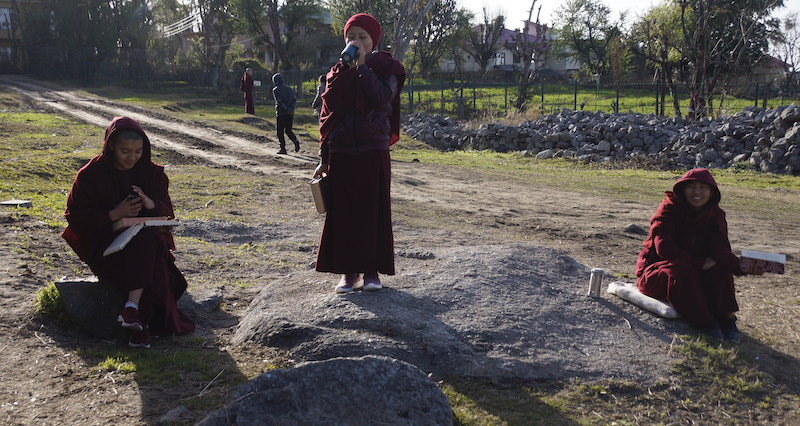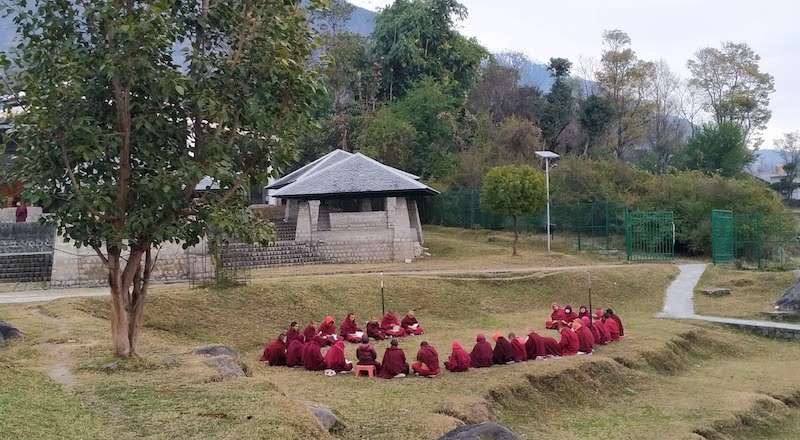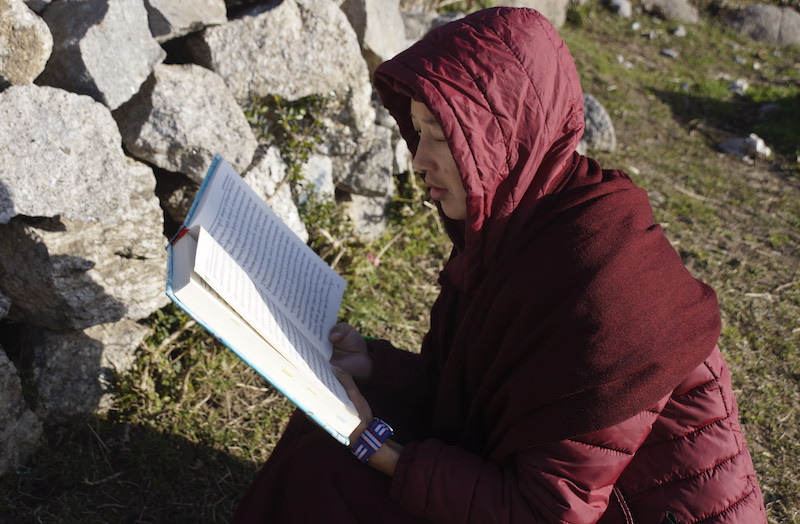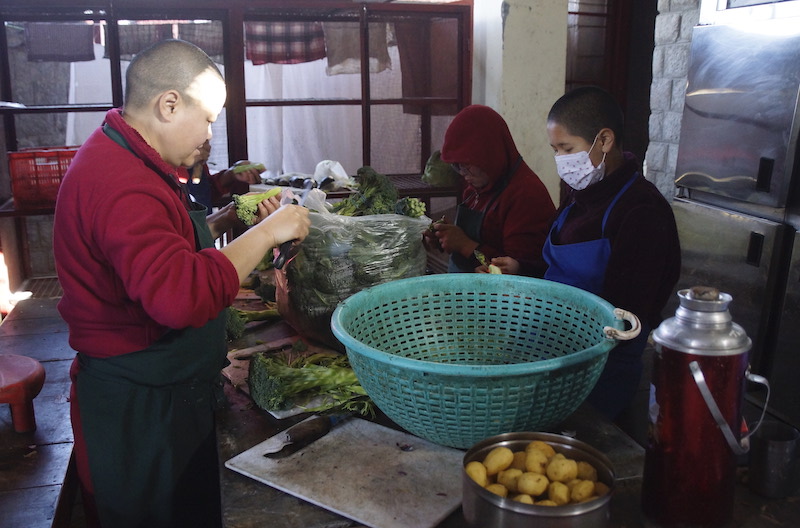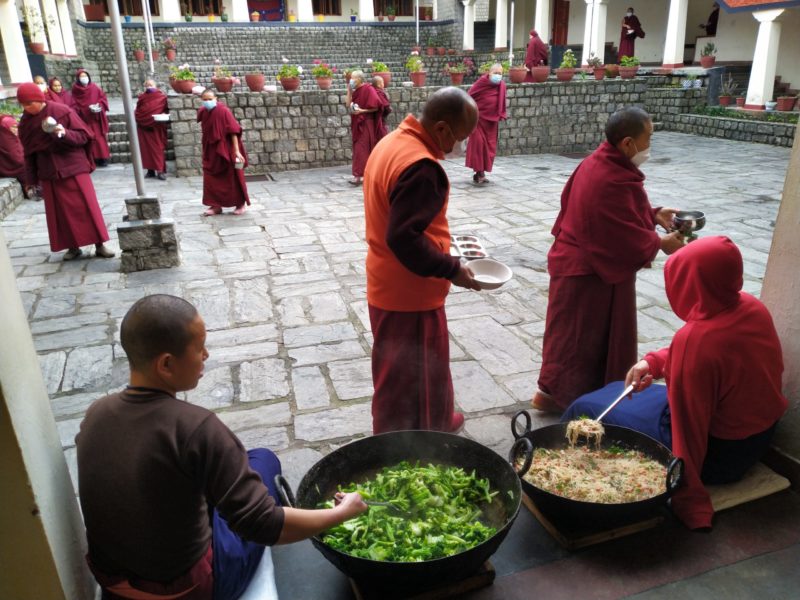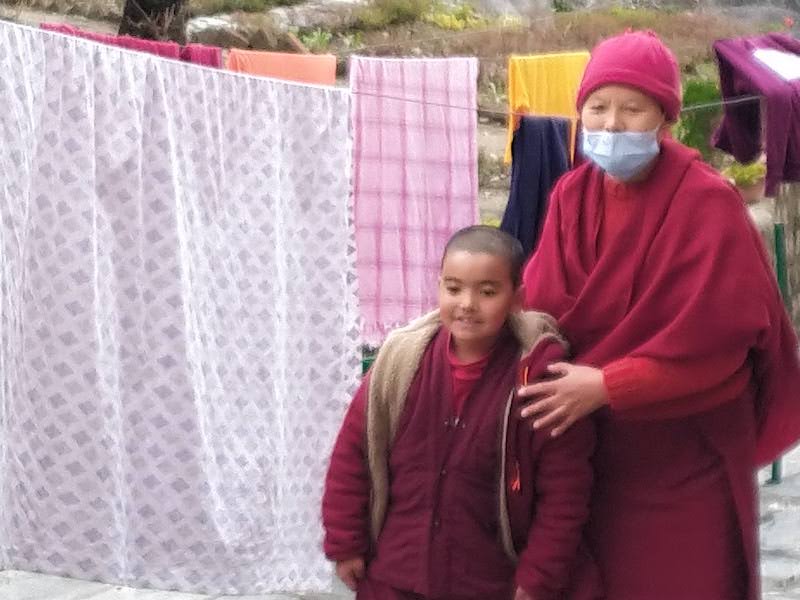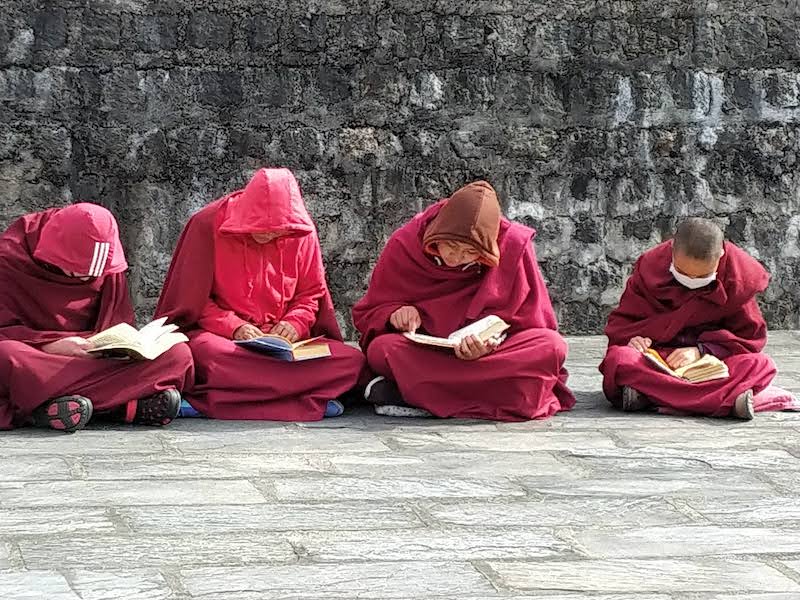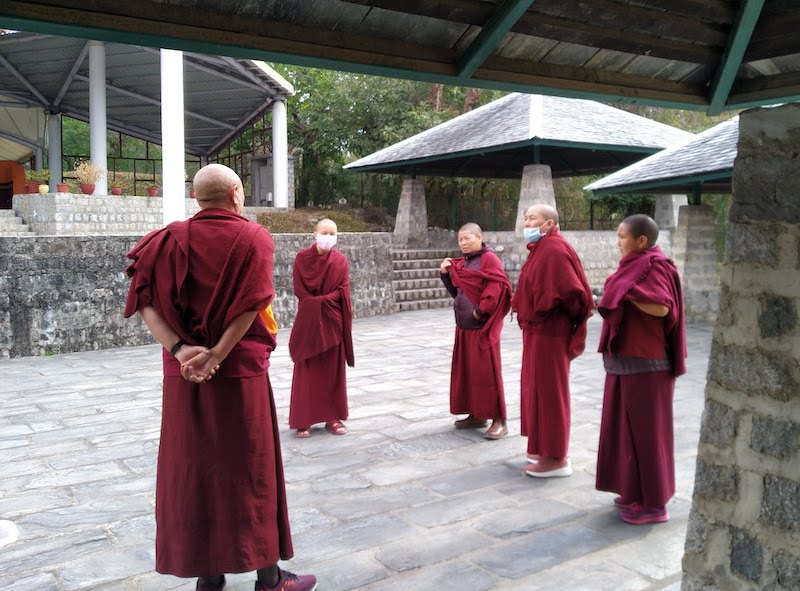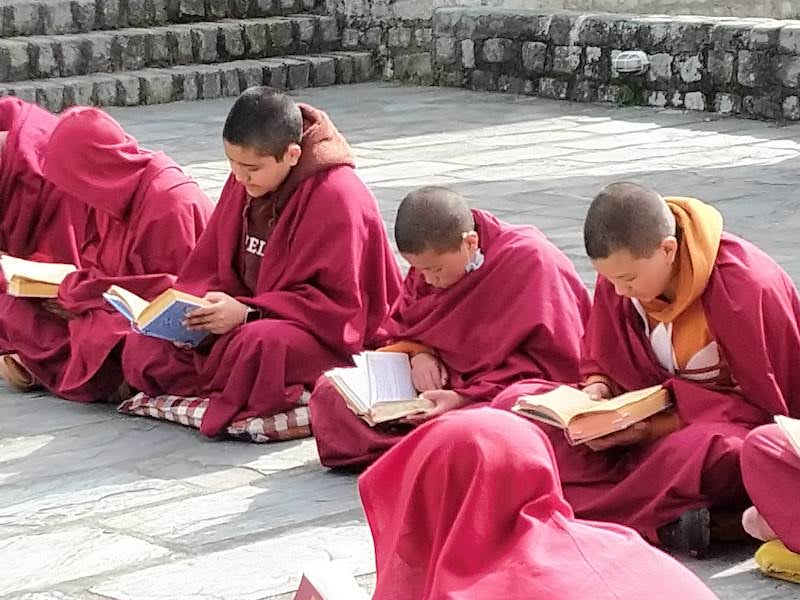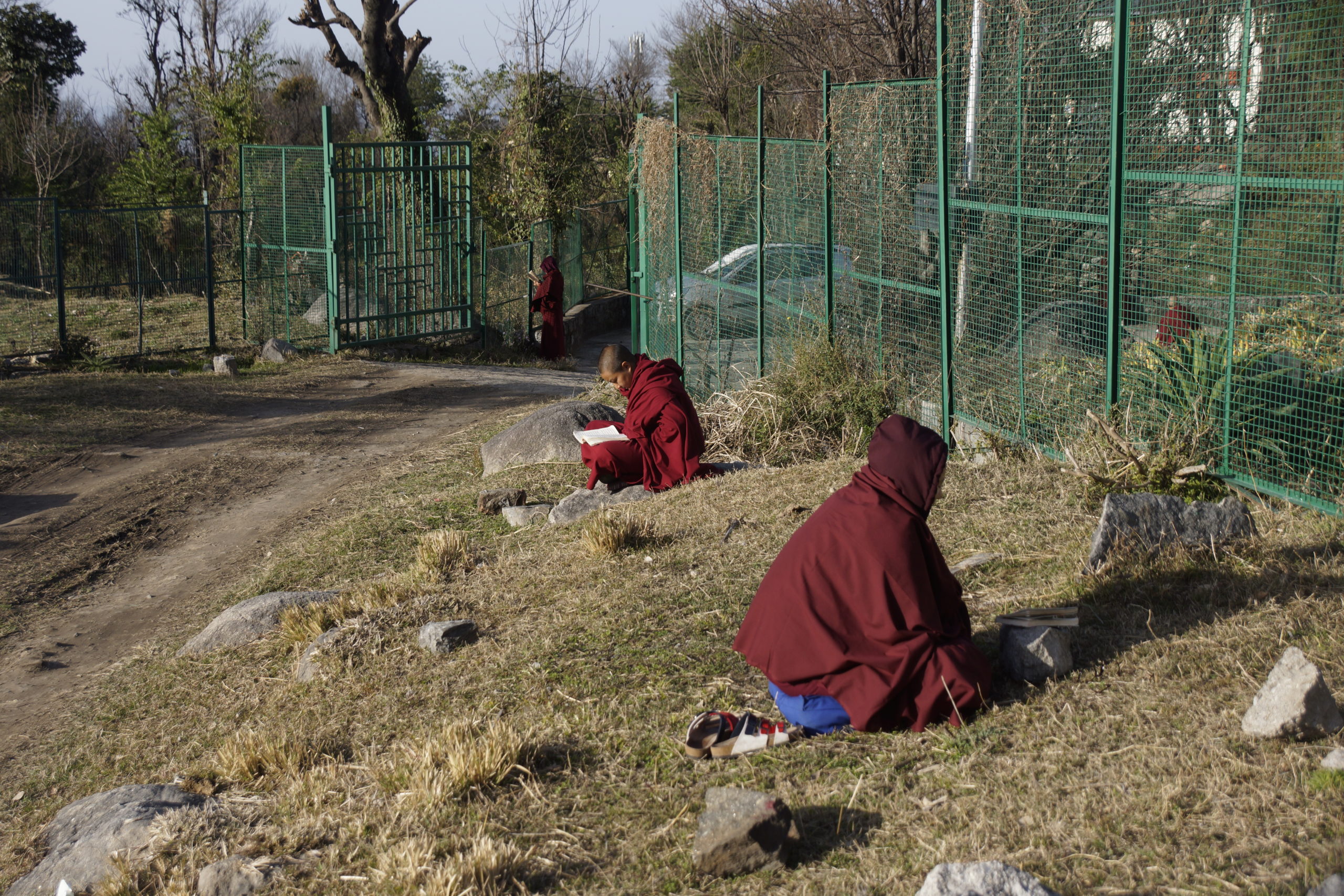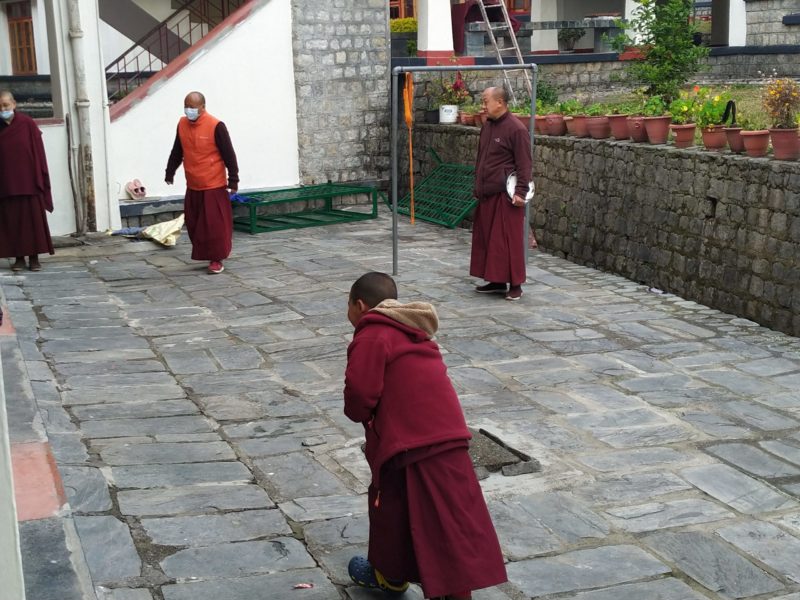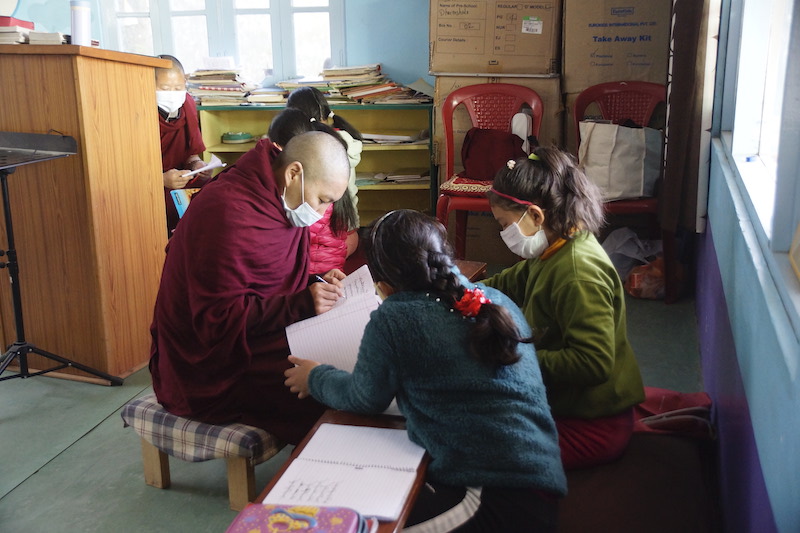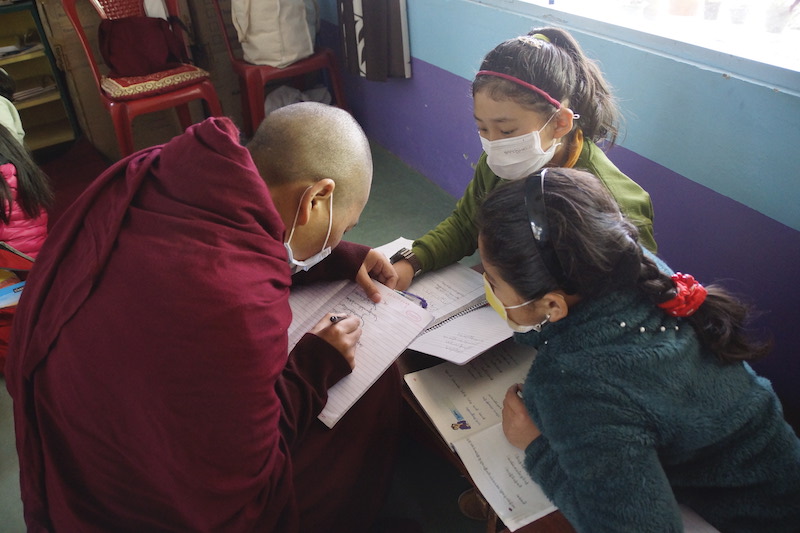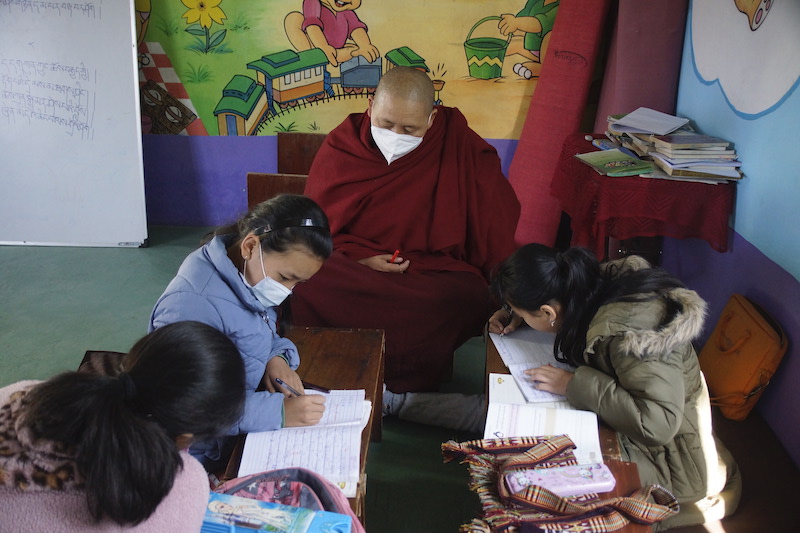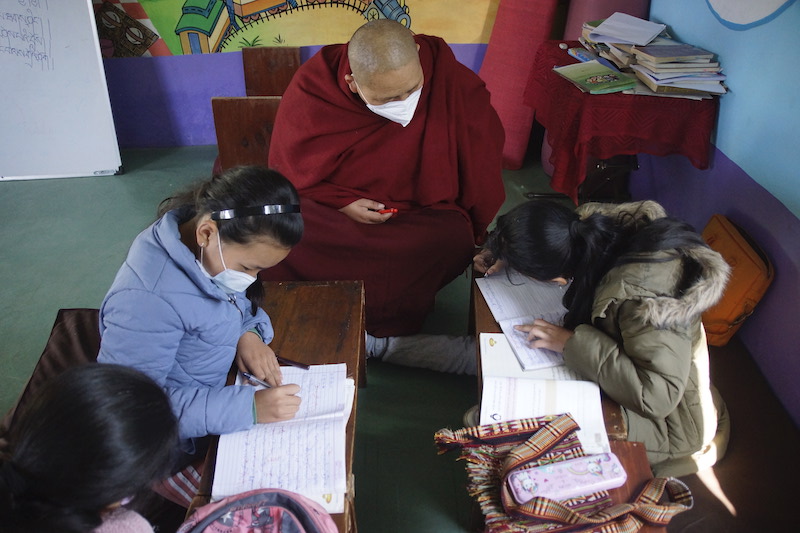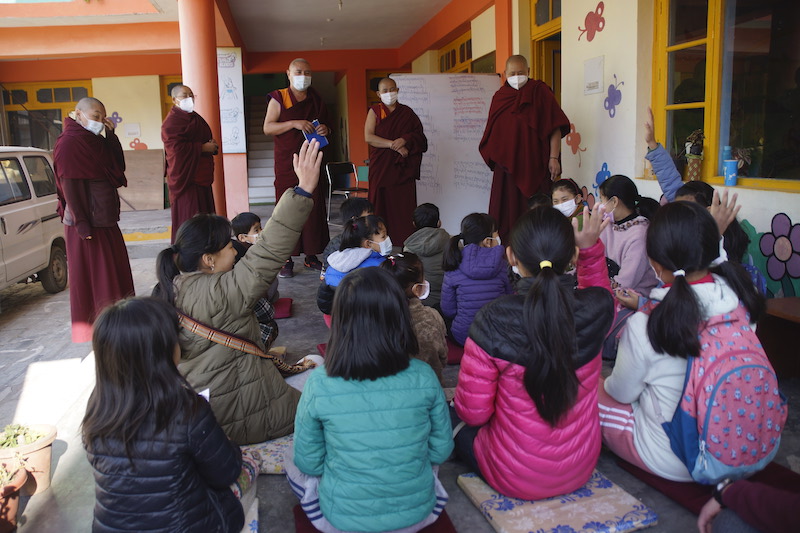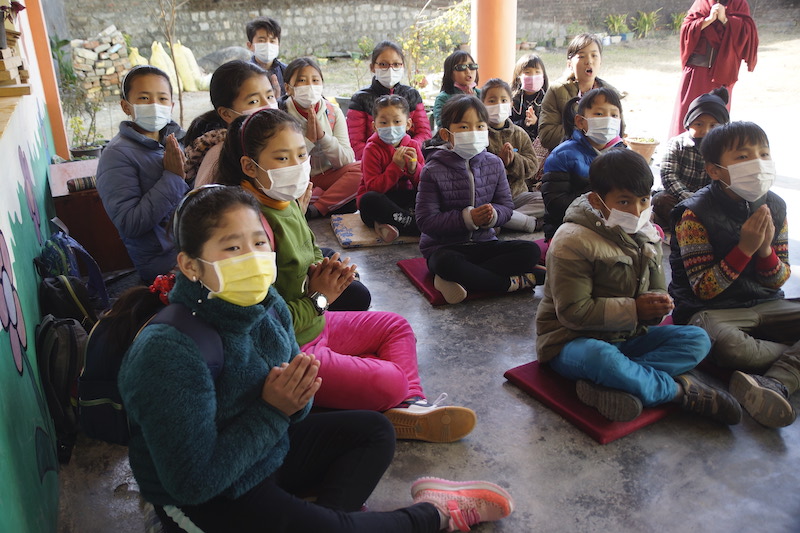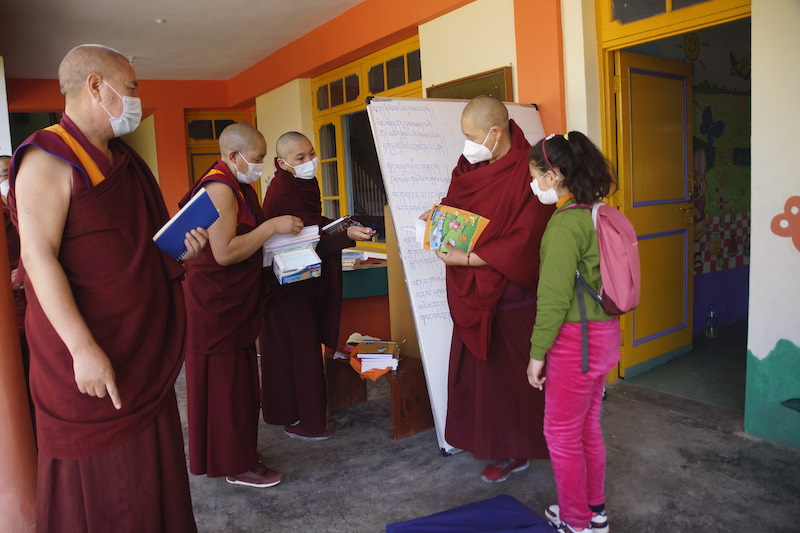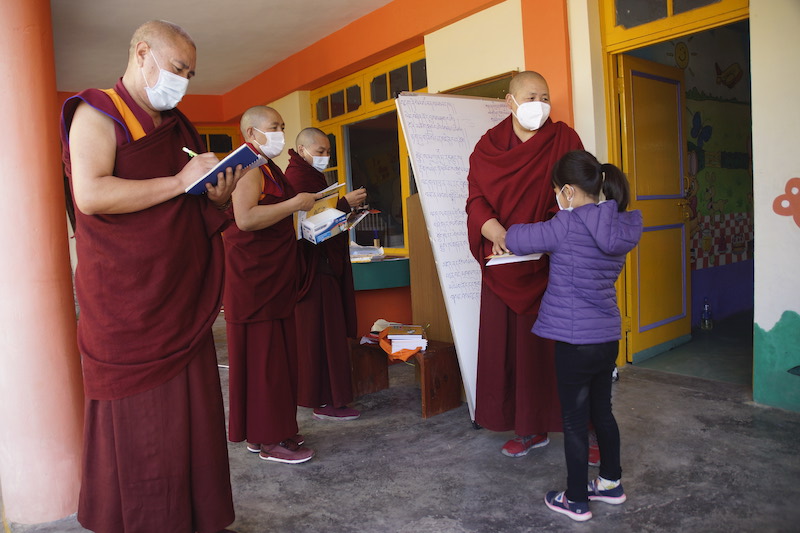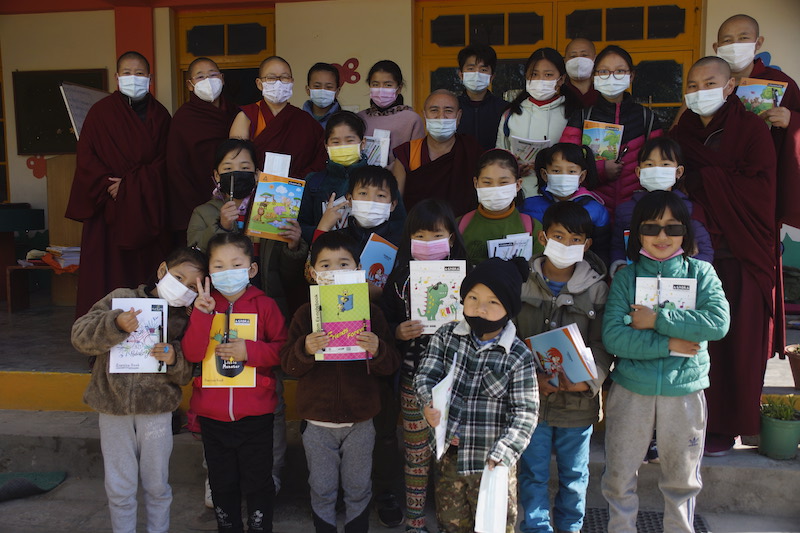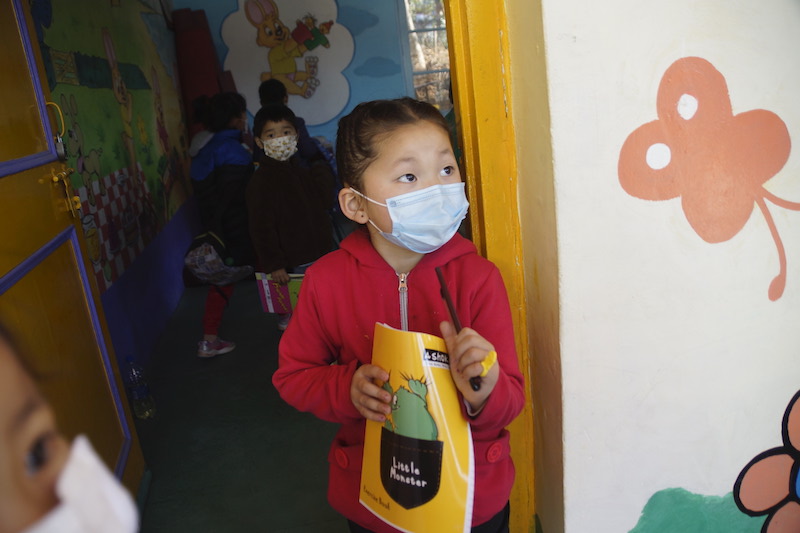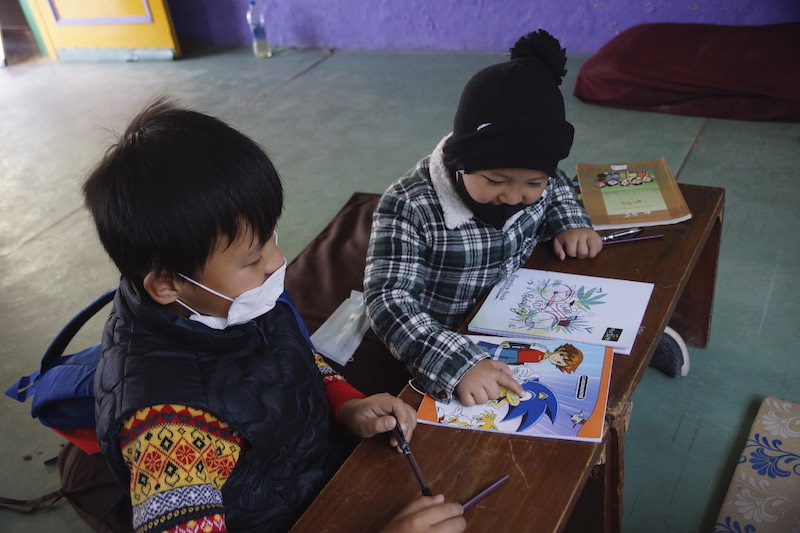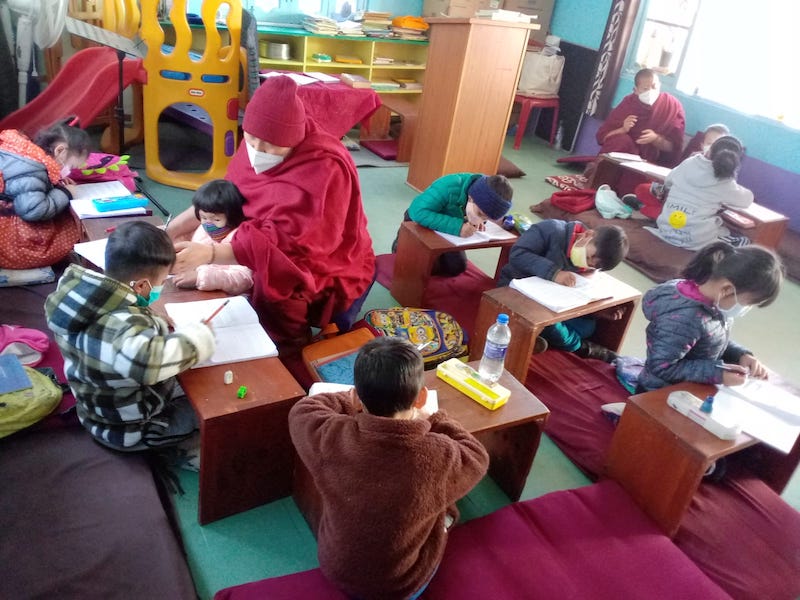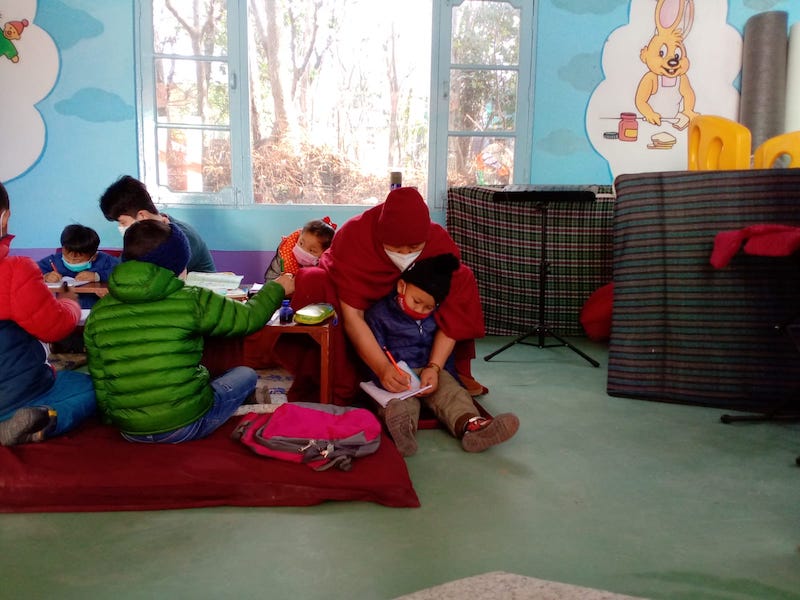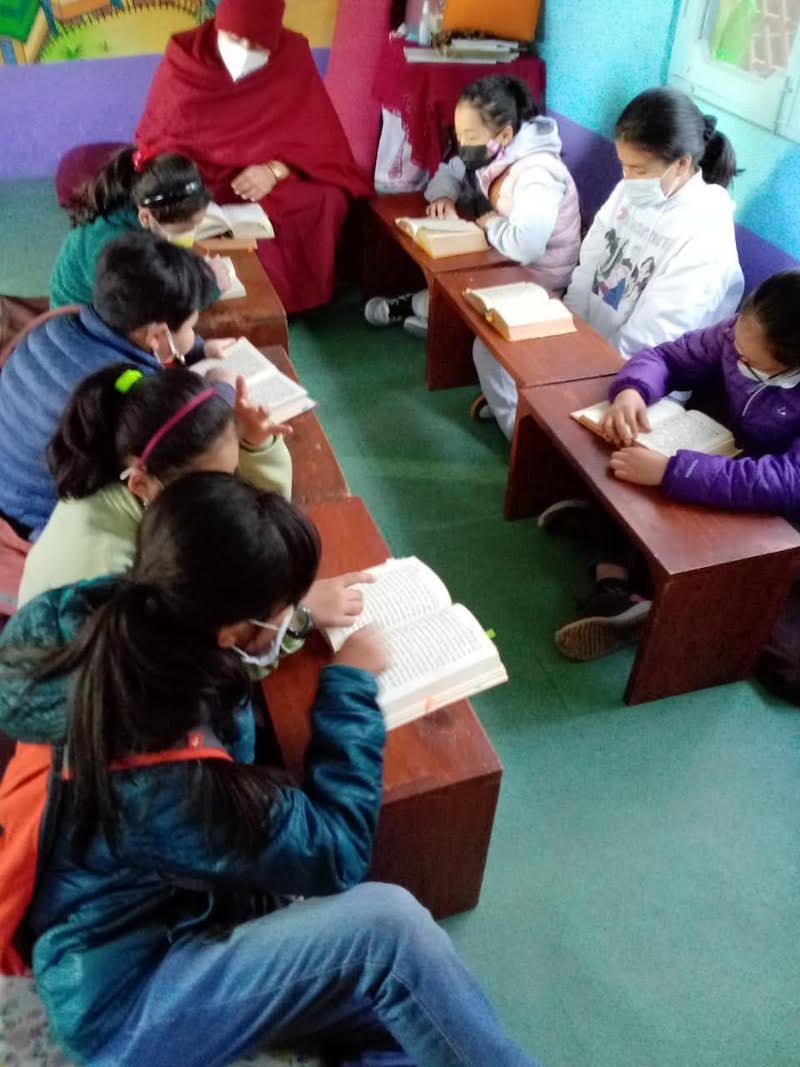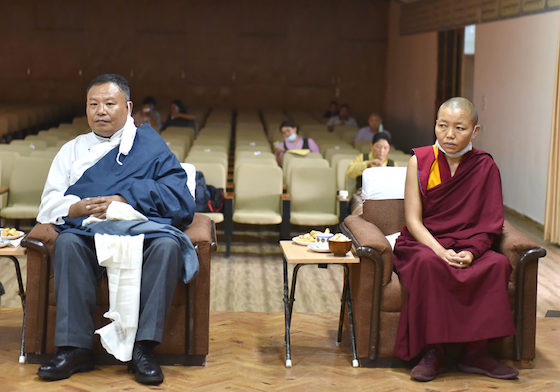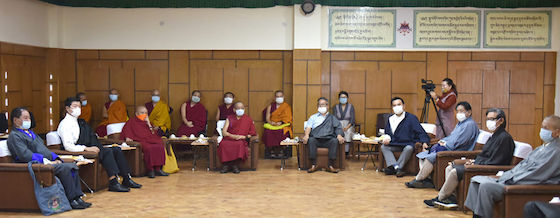2023 Geshema Graduation and Annual Debate Event
On November 27th, seven Tibetan Buddhist nuns graduated with their Geshema degrees at a special convocation ceremony in the holy city of Bodh Gaya, India.
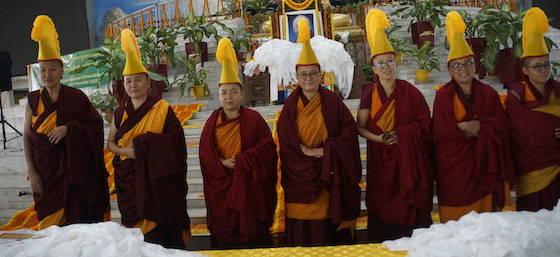
The seven Tibetan Buddhist nuns who earned their Geshema degrees in 2023 at the graduation ceremony in Bodh Gaya. Photo by the Dolma Ling Media Nuns.
The degree is the female equivalent of the Geshe degree for monks and is the highest academic degree available in the Gelug tradition, roughly equivalent to a PhD.
This was the sixth cohort of Geshemas since the degree was opened to women in 2012. The first 20 nuns graduated in 2016.
At the ceremony, Nangsa Choedon, the director of the Tibetan Nuns Project in India, spoke about the work to ensure a strong future for Tibetan nuns.
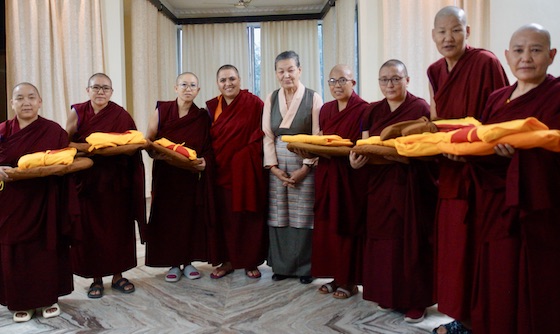
Nangsa Choedon of the Tibetan Nuns Project presents the Geshema graduates with robes and the yellow hats that signifies the holding of this highest degree. Photo by the Dolma Ling Media Nuns.
Other special guests who attended the graduation included Kunga Gyaltsen, the additional secretary of Religion and Cultural Affairs for the Central Tibetan Administration (CTA) who offered congratulations to the new Geshemas on behalf of the CTA. He encouraged the nuns to educate their local communities on core Buddhist teachings and also urged them to encourage participation in projects aimed at bringing insights from modern science to monastics.
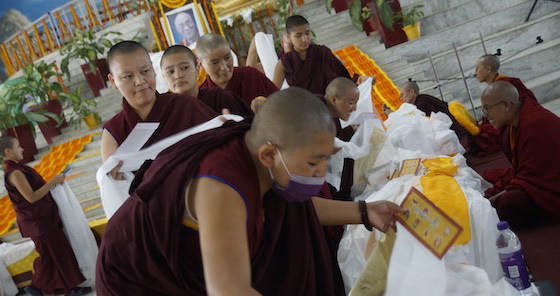
Tibetan Buddhist nuns line up to offer congratulations and ceremonial white katak scarves to the Geshema graduates. Photo by the Dolma Ling Media Nuns.
The Geshema degree enables these dedicated women to assume various leadership roles in their monastic and lay communities reserved for degree holders and hence previously not open to women.
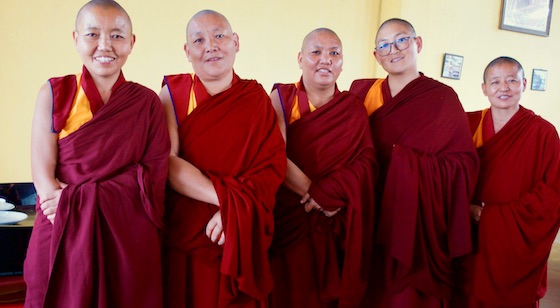
At the 2023 Jang Gonchoe inter-nunnery debate event, there were five Geshemas from previous years who acted as teachers during the month of intensive training in monastic debate. Two were from Jangchup Choeling, one from Kopan Nunnery, one from Jangyang Choeling, and one from Dolma Ling.
The Geshema exams took place in the summer and a record 132 nuns took various levels of the four-year exams. This is 38 more than the 94 nuns who took exams in 2022. Here’s a video made by the nuns about the 2023 exams.
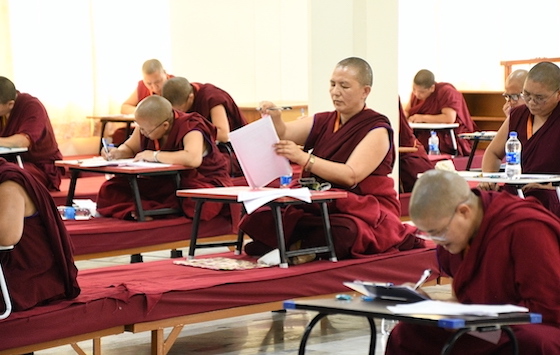
In 2022, 94 nuns sat Geshema exams. This year, a record 132 nuns are taking various levels of the four-year exams. Photo by the Dolma Ling Media Nuns.
Momentum is building and an increasing number of nuns wish to attain this highest academic standing. Many young and new nuns who join the nunneries we support in northern India are saying in their introductory interviews that they want to pursue the rigorous 17-year training that precedes the Geshema exam process.
They look to examples of Geshemas as teachers and leaders and they are inspired to follow in their footsteps. As of the end of 2023, there are 60 Geshemas in this tradition of Tibetan Buddhism.
2023 Jang Gonchoe Inter-Nunnery Debate
The graduation was the culmination of the nuns’ annual inter-nunnery debate event called the Jang Gonchoe which took place from October 25th to November 28th.
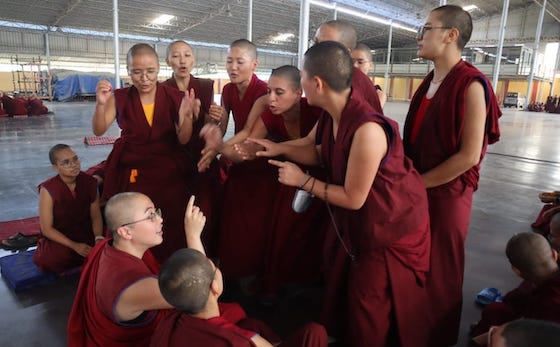
In 2023, over 500 Tibetan Buddhist nuns from India and Nepal took part in the month-long inter-nunnery debate event called the jang Gonchoe.
This year around 520 nuns from 10 nunneries from India and Nepal gathered at the Kagyu Monlam in Bodh Gaya to take part in the month-long intensive training in monastic debate.
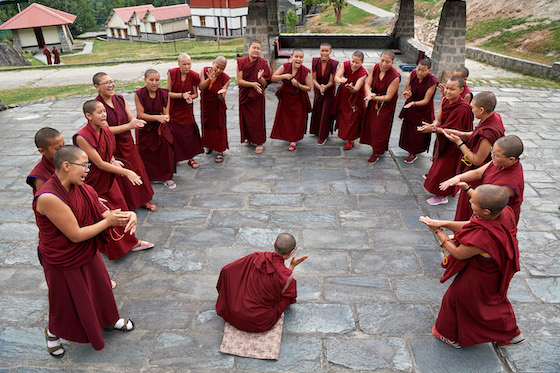
Nuns practicing debate daily at Dolma Ling Nunnery. Monastic debate is of critical importance in traditional Tibetan Buddhist learning. Through debate, nuns test and consolidate their classroom learning. Photo courtesy of Olivier Adam.
Throughout the year nuns practice debate daily at their nunneries. But, the Jang Gonchoe debate event provides the training and practice that is essential for nuns who wish to pursue higher degrees.
Long-Term Stability
Both the Geshema exams and the inter-nunnery debate are funded by endowments through the Tibetan Nuns Project and are self-sustaining. We are grateful to all those who supported these two funds.
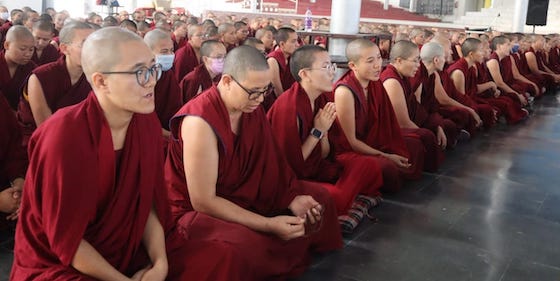
Some of 510 nuns who took part in the 2023 inter-nunnery debate. Their food and travel costs were covered by the Debate Fund. Now we want to more more of our core programs on a sustainable footing with TNP’s Long-Term Stability Fund.
Now our wish is to put more of the Tibetan Nuns Project’s core programs on a sustainable footing. To that end, we launched the Long-Term Stability Fund. You can learn more about this vision and donate here

